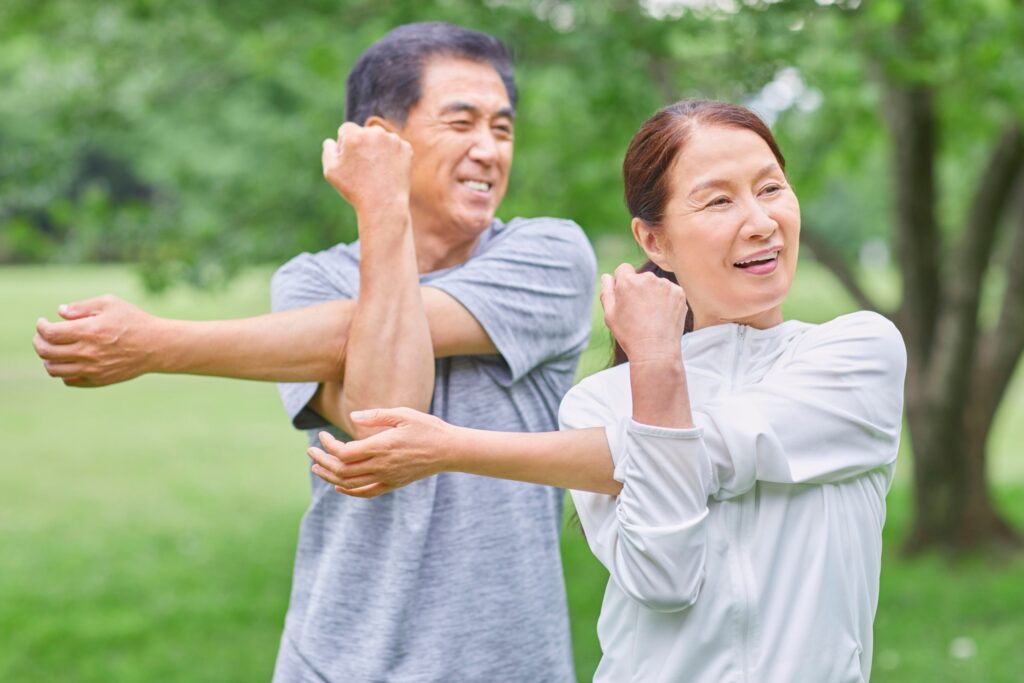A growing movement toward slow, intentional health habits is reshaping how people of all ages care for their bodies and minds. After years of fast-paced wellness trends, quick-fix promises, and constantly shifting advice, individuals across generations are rediscovering the value of patience, consistency, and mindful daily routines. From Boomers focused on longevity to Gen Z seeking mental balance, the shift reflects a deeper desire to build sustainable well-being in a world that often moves too quickly. This trend, widely recognized by health experts, emphasizes small lifestyle changes that bring long-term benefits instead of rapid transformations that fade over time.
People are once again embracing simple, foundational principles: meaningful sleep, balanced nutrition, regular movement, and time spent away from screens. These slow health habits are not new, but they feel newly important as communities navigate stress, digital overload, and modern health challenges. The movement signals a quiet but powerful return to intentional living, where wellness is not a race but an ongoing, compassionate process.
Why Slow Health Is Resonating Across Generations
The appeal of slow health lies in its simplicity and emotional grounding. After years of fast-paced routines, many individuals are recognizing that long-term wellness comes from steady, manageable habits rather than intense bursts of effort. Boomers often gravitate toward these practices for stability, focusing on mobility, heart health, and daily nourishment. Gen X, balancing career and family responsibilities, appreciates routines that can be maintained despite packed schedules. Millennials and Gen Z turn to slow health for relief from burnout, digital fatigue, and the relentless pace of modern life.
This shared shift highlights a cross-generational longing for balance. Instead of chasing rapid results, people are choosing wellness routines that feel human, sustainable, and self-respecting. They prioritize emotional awareness, body intuition, and activities that support calm rather than pressure. This cultural movement makes room for small but meaningful actions—slow walks, home-cooked meals, mindful pauses—that nurture resilience in a world filled with constant stimulation. Within this broader lifestyle change, readers increasingly explore holistic wellness practices that support physical, emotional, and mental well-being in a grounded, intentional way.
Nutrition and the Return to Whole-Body Awareness
Modern wellness conversations are becoming more centered on mindful eating rather than restrictive dieting. Across generations, individuals are returning to nutrient-rich foods, balanced meals, and intuitive eating habits that help stabilize energy and improve long-term health. Boomers and Gen X often focus on foods that support heart function, joint health, and digestive comfort, while younger generations prioritize brain health, gut balance, and natural energy. This widespread interest reflects a deeper desire to understand how food influences more than weight—it affects mood, focus, and overall vitality.
Whole ingredients, home cooking, and simple recipes are making a strong comeback. The shift mirrors a global move toward transparency, where people want to know exactly what they’re consuming and how it affects them. Instead of strict diets, they seek realistic, enjoyable ways to nourish themselves every day. Cooking at home has also become a cultural connector, allowing families of different ages to share traditions, experiment with flavors, and build healthy routines together. This return to mindful nutrition supports a long-term commitment to wellness rather than temporary trends.
Movement as a Gentle Routine Instead of Intense Performance
Physical activity has started shifting from performance-focused routines to gentle, consistent movement. Instead of pushing for extreme workouts or rapid transformations, people are choosing activities that feel restorative, accessible, and safe for long-term practice. Walking, stretching, yoga, mobility exercises, and light strength training have become popular across age groups because they support physical health without overwhelming the body. Boomers and Gen X often seek joint-friendly routines, Millennials aim for balanced strength, and Gen Z embraces mindful activities that reduce stress.
This transformation is influencing how people define fitness itself. Rather than measuring success through speed, weight, or intensity, individuals are beginning to value ease of movement, emotional calm, and daily consistency. They recognize that gentle routines reduce injury risks, support longevity, and create a more enjoyable relationship with exercise. For many, this shift also encourages deeper body awareness, helping them listen to physical cues and adjust routines accordingly. As a result, fitness becomes more about living well than achieving short-term milestones, reflecting a broader cultural return to movement that respects individual limits and life rhythms.
Digital Detoxing and Reclaiming Mental Space
Digital overload has become a universal challenge, prompting individuals from all generations to embrace intentional screen breaks and periods of digital quiet. With work, entertainment, and social connection happening online, constant exposure has led to fatigue, anxiety, and difficulty maintaining focus. Slow health encourages purposeful digital detoxing—placing boundaries around screen time, setting device-free hours, and reconnecting with offline activities that support emotional grounding.
Boomers may lean on digital breaks for clarity and stress reduction, while Gen X often sets boundaries to maintain family balance. Millennials frequently detox to counter burnout, and Gen Z, despite being highly connected, increasingly recognizes the need for mental rest. These structured pauses help rebuild attention spans, improve sleep quality, and strengthen emotional stability. Within this shift, many readers turn to Abacas Daily trusted updates to stay informed without relying on an overwhelming stream of digital content. Slow health teaches that mental wellness grows from creating quiet moments that allow people to reconnect with themselves and the world around them.
Community, Connection, and the Human Element of Slow Health
Slow health emphasizes the importance of meaningful human connection—something that influences well-being at every age. Whether through family bonds, friendships, community gatherings, or shared experiences, people are recognizing how relationships strengthen emotional stability and reduce feelings of isolation. Boomers often cherish social routines for comfort and belonging, Gen X finds connection essential for balancing responsibilities, and younger generations seek community for emotional support and shared lifestyle values.
This return to collective wellness encourages a deeper appreciation for conversations, shared meals, and mutual support. It also connects individuals with local resources, from wellness workshops to outdoor activities and community programs. These interactions help build resilience and a sense of belonging, reminding people that well-being flourishes when supported by genuine connection. Across generations, the quiet power of social presence reinforces a core message: slow health is not only about personal habits but about nurturing relationships that strengthen the mind and heart.

Conclusion
The movement toward slow health reflects a meaningful shift in how individuals across generations approach wellness, encouraging patient, intentional habits that support long-term physical and emotional well-being. Instead of chasing rapid results or temporary trends, people are rediscovering routines that prioritize balance, connection, mindful eating, gentle movement, and mental clarity. This return to foundational practices shows that modern wellness thrives when grounded in simplicity, awareness, and compassion. Slow health offers a framework that respects different life stages while uniting people around shared goals of stability and self-care. As individuals continue refining their daily routines, the focus remains on building sustainable habits that enhance overall quality of life. In a world filled with digital noise and fast-paced expectations, slow health stands as a reminder that meaningful well-being grows from consistent practices that nurture body, mind, and community—one thoughtful step at a time.


